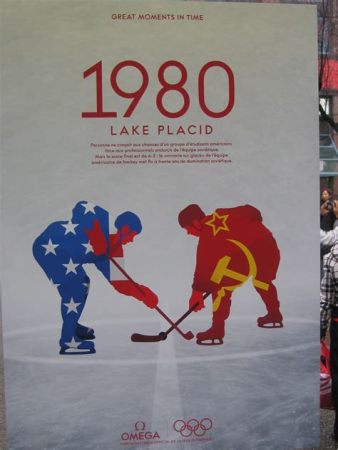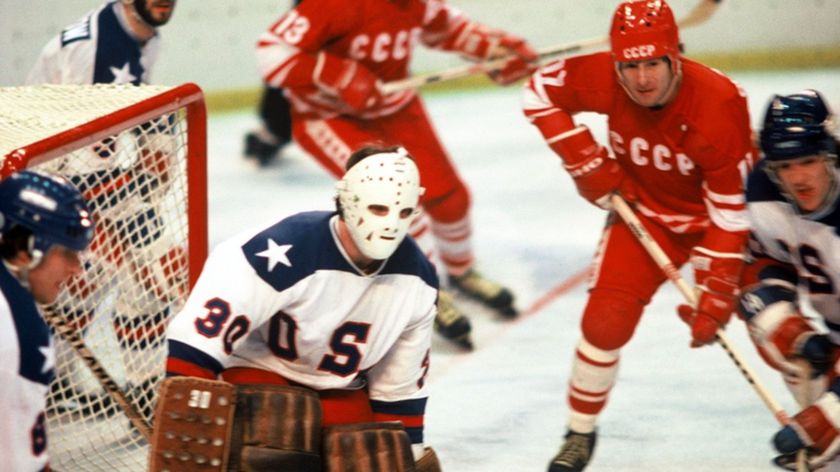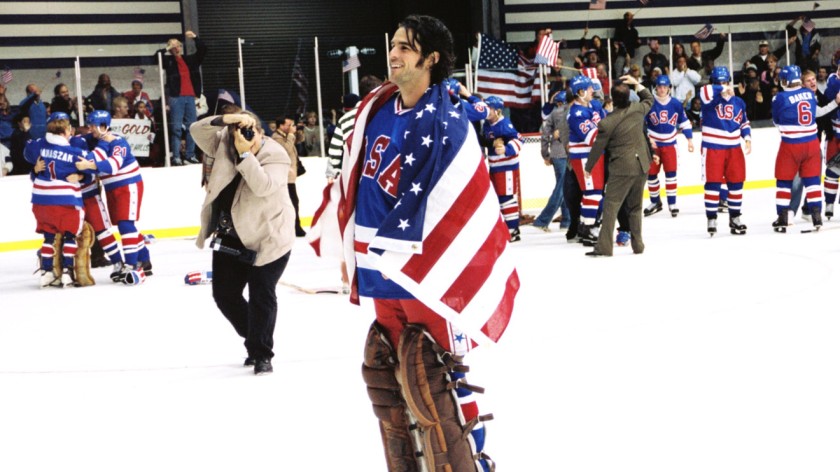In the world of sports, there is little to compare with the cakewalk cinch of the Olympic basketball team, sent to represent the United States in 1992. NBA professionals all, these guys were paid the GDP of developing nations, to play their game. Professional athletes ranged against amateurs, the “dream team” swept their series to the surprise of precisely nobody, averaging 44 points over opponents like Angola, Lithuania and Croatia. Yawn.
We didn’t always send professional athletes to the Olympics. There was a time when Olympic competitors’ amateur status was jealously guarded. Wa-Tho-Huk, that member of the Sac and Fox Nation better remembered as Jim Thorpe, may be the finest all-round athlete in American history. Thorpe was stripped of his 1912 gold medals in the decathlon and pentathlon, because he’d accepted small sums to play baseball during college summers. It was little consolation that the medals were reinstated, in 1983. By that time, the man had been gone for thirty years.

On February 24, 1980, the American hockey team defeated Finland to win the gold medal at the winter Olympics in Lake Placid, New York. The victory was almost anti-climactic. The real drama played out two days earlier, when a collection of American amateurs defeated the mighty Soviet squad.
Canadians dominated Olympic ice hockey in the early days of the event, winning six out of seven gold medals between 1920 and ’52. Team USA scored a surprise gold at Squaw Valley in 1960, after which the Soviet Union seemed unstoppable, winning gold in 1964, ’68, ’72 and ’76.
 My fellow children of the cold war will remember. A favorite complaint of the era was the semi-professional status of Soviet bloc athletes. Particularly those from East Germany and the Union of Soviet Socialist Republics.
My fellow children of the cold war will remember. A favorite complaint of the era was the semi-professional status of Soviet bloc athletes. Particularly those from East Germany and the Union of Soviet Socialist Republics.
Between its first Olympic games in 1952 and the final appearance in 1988, the Soviet Union topped the combined medal count, with 1,204. Even now, extinct for nearly thirty years, the USSR is second only to the United States, a nation which has been in the game, for over twice as long.
The Soviet Union entered the Lake Placid games as heavy favorites, with a 27-1-1 record since that 1960 upset, outscoring opponents by a combined 175 to 44. The 1980 team had world class training facilities, having played together for years in a well-developed league. Vladislav Tretiak was widely regarded as the best goaltender in the world. Tretiak, defenseman Viacheslav Fetisov and forward Valeri Kharlamov would go on to be enshrined in the International Hockey, Hall of Fame.
In exhibition games, Soviet club teams went 5–3–1 against NHL clubs. The year before, the Soviet national team routed an NHL All-Star squad 6–0 to win the Challenge Cup. To all the world, this was going to be a David vs Goliath contest.
University of Minnesota coach Herb Brooks had assembled the youngest team in U.S. history to play in the Olympics, with an average age of only 21. Left wing Buzz Schneider was the only veteran, returning from the 1976 Olympic squad. Nine players had played under Coach Brooks. Another four came from arch-rival Boston University including goalie Jim Craig, and team captain Mike Eruzione.

For some players, the hostility of that college rivalry carried over to their Olympic teammates.
The Soviet team had demolished earlier opponents by a combined score of 50-11. The US squad had squeaked out a series of upsets, 23-8. New York times sports reporter Dave Anderson wrote:
“Unless the ice melts, or unless the United States team or another team performs a miracle, as did the American squad in 1960, the Russians are expected to easily win the Olympic gold medal for the sixth time in the last seven tournaments.”
Team USSR took an early lead of 2-1 in the first period. Mark Johnson tied the score with one second left, leading Soviet coach Viktor Tikhonov to make the goofiest decision, in sports history. He pulled the best goalie in the world, and replaced him with backup goaltender Vladimir Myshkin. The move shocked players on both teams. Years later, Johnson and Fetisov were NHL teammates, and Johnson asked him about the decision. “Coach Crazy”, was all the Russian said.
Aleksandr Maltsev scored an unanswered goal on a power play, 2:18 into the second period. At the end of the second, the Soviet Union led, 3-2.
Mark Johnson scored his second goal of the game at 8:39 in the third, in the last seconds of a power play. For the American team, it was only the third shot on goal in the last 27 minutes. Vasili Pervukhin got in his goalie’s way with ten minutes to play, as Mike Eruzione fired one past Myshkin to put the Americans ahead, 4-3.
 The Soviet attack was relentless, but Craig let nothing past. Team USSR took 39 shots on goal to the Americans’ 16, but the score held.
The Soviet attack was relentless, but Craig let nothing past. Team USSR took 39 shots on goal to the Americans’ 16, but the score held.
In the final moments, the crowd began the countdown. ABC Sportscaster Al Michaels called the game in a rising crescendo: “11 seconds, you’ve got 10 seconds, the countdown going on right now! Morrow, up to Silk. Five seconds left in the game. Do you believe in miracles!? YES!!”
David had slain Goliath. Rocky Balboa defeated Captain Ivan Drago. A hastily assembled bunch of college kids had just beaten the mighty Soviet Union, arguably the finest hockey team, in the world. Coach Brooks sprinted back to the locker room, and cried. Pandemonium reigned supreme, as Jim Craig circled the ice, wrapped in an American flag. ABC sportscaster Jim McKay compared the victory to a Canadian college football team defeating the Superbowl champion Pittsburgh Steelers. In the locker room, players spontaneously broke into a chorus of “God Bless America”.

In the gold medal round on the 24th, the Americans were behind at the end of the 2nd period, 2-1. The American team was in the locker room during the second intermission, when coach Brooks bore down. “If you lose this game, you’ll take it to your f***ing graves”.
Team USA defeated Finland for the gold medal, 4-2.
In his day, International Olympic Committee President Avery Brundage (1952-1972), was adamant about preserving the amateur status of Olympic athletes. Once he was gone, the floodgates began to open. Years later, sports reporter Ron Rapoport wrote “The pros are there for a reason… The pro athletes are pre-sold to the public, which means increased viewership.”
The Olympic games would never be the same.
Nineteen years later, Sports Illustrated called the Miracle on Ice “The top sports moment of the entire 20th century”.
The 1992 “Dream Team” crossed a line which can never be retaken, but that can never change the finest moments in sports history. For those of us who follow Boston sports, that includes the 2004 World Series, the final, heart-stopping two minutes and seventeen seconds of Superbowl LI in 2017, and the Miracle on Ice, of 1980.




I remember sitting on the edge of my seat watching this game. One of the best hockey games ever.
LikeLiked by 1 person
One of the greatest sporting events I’ve ever seen, and I’m not a big hockey fan.
LikeLiked by 1 person
Reblogged this on Dave Loves History.
LikeLike
This was the first hockey game I ever watched. Hockey was not big in the south at that time…great for America first and great for the sport. You could feel the energy from it.
LikeLiked by 1 person
You started at the top, my friend.
LikeLiked by 1 person